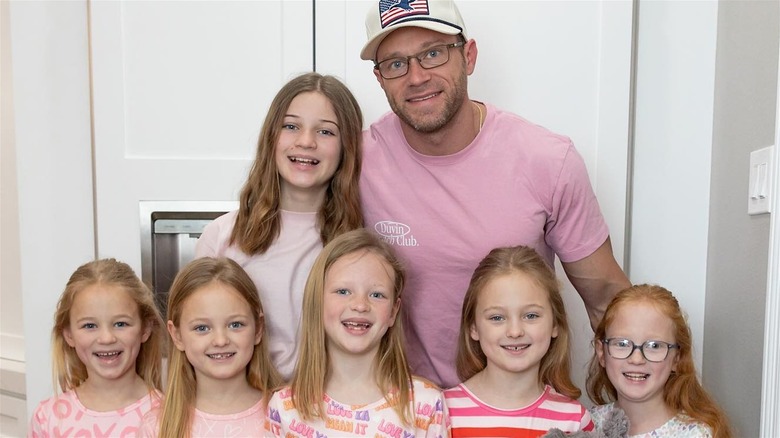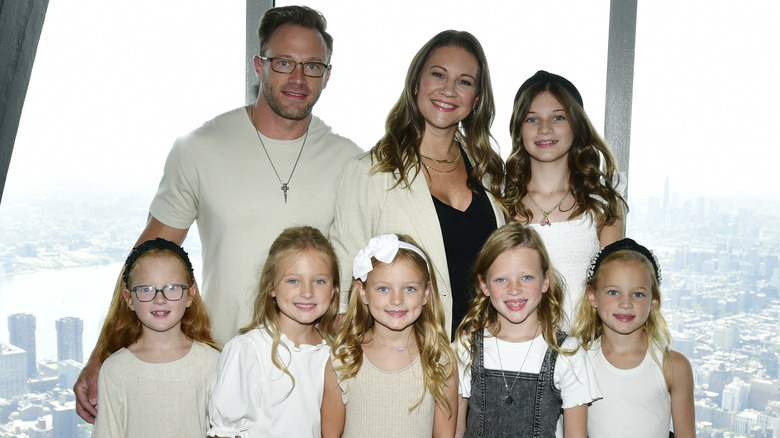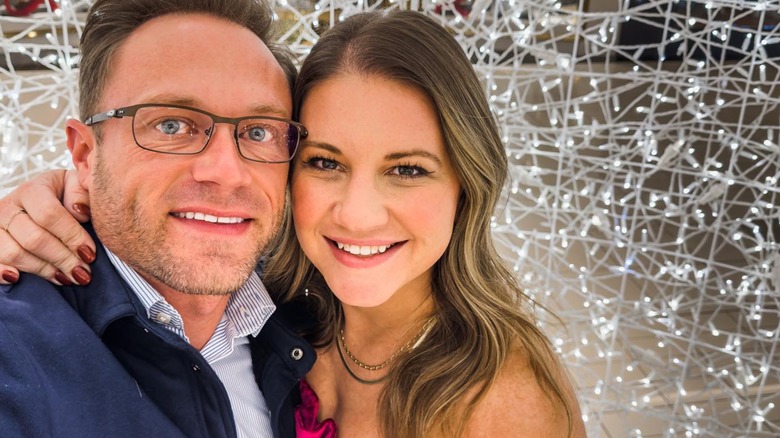OutDaughtered's Adam Busby Has Been Open About His Experience With Postpartum Depression
Roughly 10% of new fathers experience postpartum depression before or after the birth of their children, according to the Cleveland Health Clinic. Yet, the conversations centered around this mental health condition primarily focus on cisgender women. TLC's "OutDaughtered" dad, Adam Busby, hopes to use his nationally televised platform to change that.
As the show title implies, Adam and his wife Danielle have six daughters: their eldest, Blayke Busby, and an all-female set of quintuplets — the first of their kind in documented United States history. While the TLC series follows the hijinx and drama that comes with a family of eight, Adam wanted to use the show to talk about his struggles with PPD following the quints' birth.
"After coming face to face with postpartum depression following the birth of our five daughters, I quickly learned that this is a very real struggle that dads all around the world go through, yet you rarely ever hear it talked about," he said in a statement to People. "I'd be doing an extreme disservice to our fans if I hid this from the public and wasn't honest with them."
Adam Busby said that the vulnerability has been difficult but rewarding
Per the Mayo Clinic, symptoms of postpartum depression include mood swings, anxiety, and trouble sleeping or eating. In severe cases, postpartum psychosis may occur, which can cause hallucinations or delusions, paranoia, or attempts to harm yourself or your baby. Sharing his experience with PPD has not been easy, but Adam Busby says he's obligated to do so, given his unique circumstances.
"I have a big responsibility with the platform that I've been given," Adam's statement read. "I want to make sure that I bring awareness to the realities of postpartum depression and other mental health issues. Why? Because I know I'm not alone, and I want others to know they aren't either. I want men to feel comfortable opening up about their feelings and expressing the struggles they're going through."
Adam emphasized his decision to openly share his struggles on the show during a "Good Morning America" appearance. "If me being vulnerable and talking about this on national television is going to help one dad, then it's all worth it," he said. Adam's wife, Danielle Busby, added that she is "100% on his side," but initially, it took some time for the mom of six to get used to the concept of male postpartum depression — which isn't uncommon.
He hopes to set an example for dads across the country
Postpartum depression often goes undiagnosed in cis men because many believe that PPD only affects those who give birth, including those closest to "OutDaughtered" star Adam Busby. "I always thought postpartum depression was for the women because your body goes through so much hormonal change after you've had a baby," Adam's wife, Danielle Busby, shared on the show (via Country Living). "I never even knew that was a thing that men can have."
Although Danielle said she's never been diagnosed with depression, she recalled times when she felt anxious or confused during her pregnancy. "There were days I told Adam: 'I need you here. I need you with me,'" she confessed on the show, adding that perhaps Adam never felt he could ask the same from her. Despite the learning curve this experience has placed on the Busby family, Adam and Danielle remain united in the face of Adam's mental health diagnosis. In fact, stipulations the Busbys had before filming "OutDaughtered" Season 9 included a lighter focus on Danielle and the girls and a greater emphasis on following Adam's journey as an at-home dad. Adam told Good Housekeeping that he hopes "OutDaughtered" will set an example for other men to take on more active caretaker roles and be honest about and care for their mental health.
If you or someone you know needs help with mental health, please contact the Crisis Text Line by texting HOME to 741741, call the National Alliance on Mental Illness helpline at 1-800-950-NAMI (6264), or visit the National Institute of Mental Health website.


